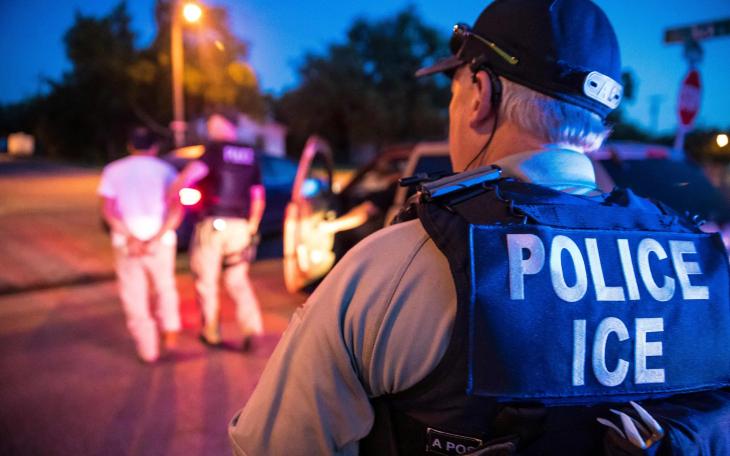Texas Senator Robert Duncan (R-Lubbock) was accompanied by Texas Governor Rick Perry with the bone dry O.C. Fisher Reservoir in San Angelo as a backdrop to sell Proposition 6, a ballot initiative to give the Texas government permission to move $2 billion out of the state’s Economic Stabilization Fund (ESF), commonly referred to at the Rainy Day Fund, to create a fund to finance large water infrastructure projects.
To Duncan, Prop 6 is a no-brainer. It doesn’t raise taxes, and it will help fix and add to water infrastructure needed for a rapidly growing State of Texas. Texas is growing at a rate of 1,000 new residents every day, Texas Gov. Rick Perry said.
“We certainly enjoyed in Texas a lot of additional revenue going into the Rainy Day Fund a result of all the oil and gas exploration. And the beautiful part of this is that we now have sufficient funds in the Rainy Day Fund, or the Economic Stabilization Fund, to allow us to invest in infrastructure. Texas is growing, and our population is increasing about 5 million every ten years. And in order to accommodate that growth, we’re going to have to invest in infrastructure today. If we wait until tomorrow, we’ll be behind the curve, and everything will be more expensive, and taxpayers will have to pay more,” Duncan said in an exclusive interview with San Angelo LIVE!
“Under this scenario, using $2 billion in the Rainy Day Fund to create a revolving loan fund... We’re actually not spending the money. Instead we’re using the money as opposed to spending it. We’re using it by allowing communities to obtain enhanced loans that will enable them to start water projects,” Duncan said.
An example project, according to Duncan, is a water treatment plant or a pipeline from a lake to a small community, “like we have out in west Texas,” he said.
“A lot of these projects are financed by revenue that they generate, but a part of the problem is that until these projects are built, they don’t have any revenue,” said Duncan.
Duncan said that the water infrastructure fund would do two things to help speed the construction of water infrastructure projects. First, it will provide low interest loans, and second, it will defer the payments of principal and interest until the project gets built.
For example, San Angelo’s $120 million Hickory pipeline was financed by issuing a bond at market rates. The City of San Angelo started paying $8 million annual principal and interest on the bond three years ago, long before the city’s water department could benefit from one drop of water from Hickory, which may happen next year if all goes as planned. Duncan explains that with the water fund proposed by Prop 6, that annual payment could be deferred until the project is built, and the city is generating more revenue as a result of the project.
Rural Texans, meaning those who live outside Texas’ I-35 corridor, Houston and Dallas may be concerned that most of the $2 billion will focus on large urban water harvesting projects and ignore the rural areas, like San Angelo. “About 10% of the program is dedicated to rural water conservation projects. About another 20% is concentrated on rural agricultural projects. And we’ll keep a close eye on it, obviously. But it’s a big state,” Duncan said.
Duncan stressed that the purpose of the fund is to help Texas get ahead of the rapid growth that it’s experiencing. “The water needs have to be addressed all across the state, and as a rural legislator, I’m comfortable with the spending limits that are placed in the bill right now,“ he said.
Michael Quinn Sullivan, firebrand of the Texas conservative movement opposes setting aside $2 billion out of the Rainy Day Fund. He argued in April, when the Texas Legislature was deliberating sending up Prop 6 to the voters, that removing $2 billion from the Rainy Day Fund was not conservative thing to do. ESF money, instead, should be used for state funding emergencies, he argued.
“It [the ESF] is not a savings account for any purpose, but a specific one: budget stabilization in a time of economic turmoil. It’s not a savings account, or a mad-money account,” Quinn said.
But the state has already identified $27 billion of cumulative water projects that need assistance now, according to Gov. Rick Perry in an April 26, 2013 editorial.
Noting the shortage of money and the large backlog of water projects needed for Texas’ rapid growth, Duncan disagrees with Sullivan. “Waiting is not conservative. It’ll cost you more money in the long run, and we’re fortunate enough in Texas to have accomplished very conservative and very wise budget planning over the years. We haven’t spent money on wasteful things.”
In order to set aside $2 billion from the Rainy Day Fund to finance the water fund, Texans must approve Proposition 6 at the polls. Early voting starts Oct. 21 and Election Day is Nov. 5.
For more information on Prop 6:
Conservatives divided on water fund (Texas Tribune)
WaterTexas, a PAC organized to sell Prop 6, headed by Texas House Speaker Joe Straus
Michael Quinn Sullivan on Prop 6 when it was in the Texas Legislature’s womb
Gov. Perry’s Editorial on Prop 6
Subscribe to the LIVE! Daily
Required






Post a comment to this article here: